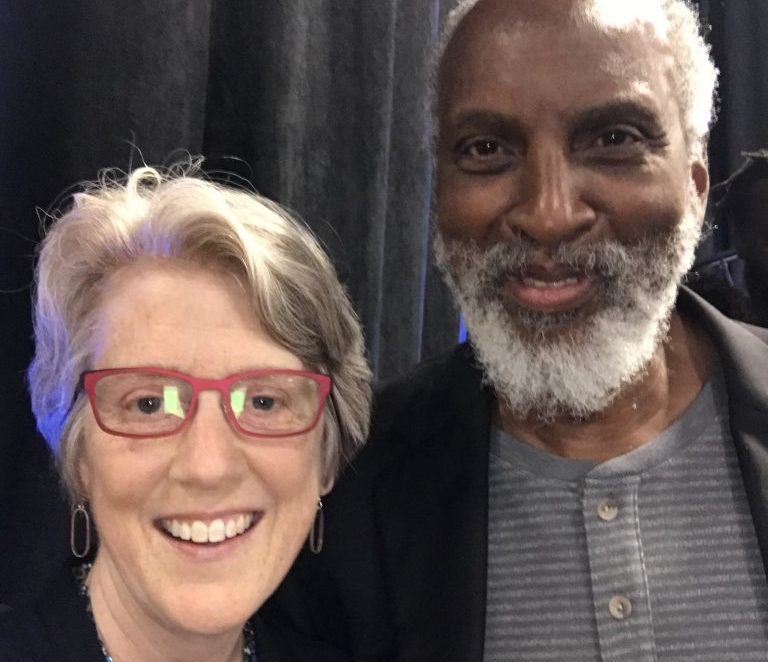April 22, 2019
Belonging Starts with Sawubona

If I were greeting you on the street in passing, or at Starbucks for coffee today, I might say: “Sawubona!” A Zulu greeting, Sawubona means “I see you,” and you might reply “Ngikhona,” which means “I am here.” With this greeting, we would acknowledge each other’s existence, and our connection to one another.
I learned this greeting at the 2019 Othering & Belonging conference in Oakland, CA, earlier this month. Thanks to a scholarship from the Haas Institute for a Fair and Inclusive Society, which hosts the conference, I spent three days with more than one thousand others learning about ways to move from exclusion through inclusion to belonging.
Each day was packed with incredible speakers – educators, writers, actors, community activists, faith leaders, students and others – all hoping to frame a new and different path toward a just society built on belonging. As john a. powell, the director of Haas Institute, notes in his book, Racing to Justice: Transforming Our Conceptions of Self and Other to Build an Inclusive Society, “Justice involves claiming a shared, mutual humanity.” Yet he points out that this is firmly contradicted by our Western or American view of self, which tends toward isolation and separatism, and often leads to othering and supremacy. So, each day, we explored what it takes to move from othering to belonging.
Our learning started with an acknowledgement that we are in a time of huge (demographic) change, which naturally brings anxiety. How we respond to this anxiety, however, is very strongly influenced by the stories that are crafted and told about the change.
When we respond with a sense of threat, our response is likely to be one of “breaking,” with a focus on “Us and Them” that gives rise to isolation, racism and oppressive systems. But, when we respond with a sense of opportunity, our response is likely one of “bridging,” where we are encouraged to create a new “We,” and diversity and difference are seen as assets upon which we co-create a greater sense of belonging.
Several times during the conference we were asked to share moments of bridging from our own lives. I immediately thought of meeting Eddie Snead, reaching across race, gender and age to form a friendship that has helped open my eyes, as a white woman, to the role I must play as an anti-racist if I’m really interested in equity and belonging. And then, I thought about the Breastfeeding Disparities Forum we held to explore the barriers of institutional racism and historical trauma that keep African American moms from accessing the best health care possible for their babies. It was a time to listen deeply, put down our defenses and open ourselves to seeing past exclusion to inclusion, and even belonging.
This spring we are launching our new Learning Series with an inaugural event on Health Equity. With the help of powerful panelists – Victoria Gardner, EdD, Director of Equity, Diversity and Inclusion at UW School of Public Health; Sheila Capestany, Strategic Advisor for Children and Youth, Public Health – Seattle & King County; and Teresa Mosqueda, Seattle City Councilmember – I hope we open the door to greater belonging.
In the introduction to Racing to Justice, powell questions whether, given the central and defining role race plays in our country’s DNA, it will be possible to “stop focusing simply on transactional moves we see as winnable and start working for the transformation of the institutions that perpetuate suffering.” Can we create a new sense of “We,” a shared humanity, a co-created society of belonging? To be honest, I came home from the Othering & Belonging conference both inspired and somewhat overwhelmed, wondering the same: “Is it possible to for our nation to seek bridging and belonging, over breaking and othering?”
It is not only possible, but absolutely necessary to both our healing and our future, powell believes. Along with his inspiration, I find hope in bridging moments that begin with Sawubona, deep listening and recognition of our shared values and shared humanity.
Ngikhona!



